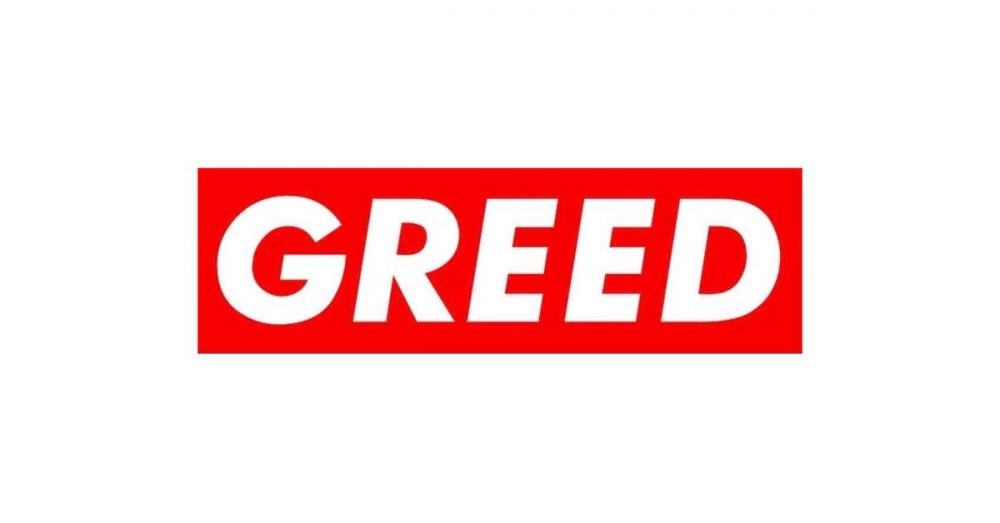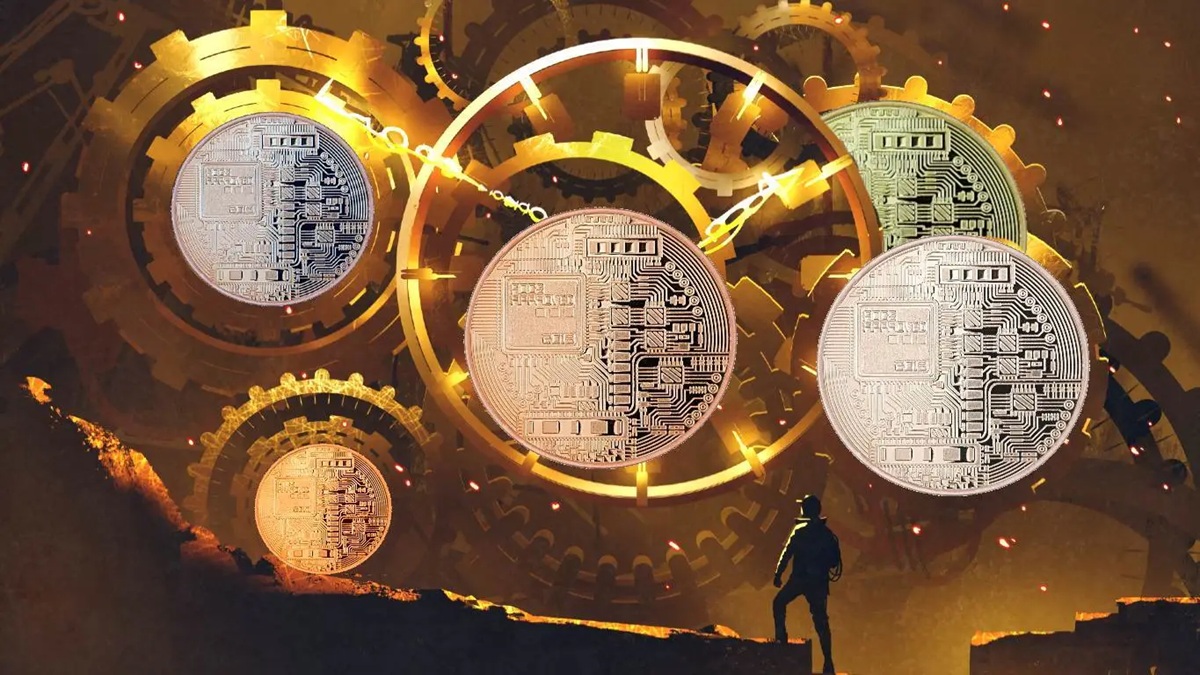In S**tcoin Spring, any pointless cryptocurrency with a Twitter account can enchant thousands of traders into playing meme coin musical chairs. Throwing money at the wall and reason out the window, they let greed get the best of them. Sometimes literally.
This past week a social experiment called GREED got the best of would-be speculators on the Solana blockchain. Instead of wealth they’re getting bupkis – with a side of public shaming to boot.
It’s a story that showcases the dark psyche encouraged by those one-off tales of meme coin riches. For every lucky speculator up 5,000,000% on pepecoin (PEPE), there are thousands of gamblers losing money to insiders and trading bots. Some fall for malicious tokens designed to steal all the money in their wallets, not just the poker chips they’d anted up.
An experiment in GREED
GREED could have been one of those. To get GREED, over 43,000 Twitter accounts this week authorized one man in Croatia to tweet on their behalf. A further 55,306 wallets signed an intentionally sussy-looking transaction that, in theory, might have let him drain their wallets.
But the creator of the GREED experiment doesn’t plan to steal their money (nor can he; his developers never built that code). Even so, Ivor Ivosevic, better known as Voshy to the Solana community, very much will shitpost from those Twitter accounts.
In an interview with CoinDesk, Voshy said he wants to teach crypto traders a lesson, one that focuses on internet security – with maybe a dash of morality and sensibility, too. The thing’s called GREED, after all.
Voshy didn’t set out to write a parable of crypto’s dark side.
For five days he watched in crypto chat rooms as people conjured up complete garbage tokens – “dollar sign in front of fruit name” garbage – sold it to their friends and released it, at which point “everybody apes in and the token goes to zero.”
A week ago, disenchanted by this parade, he wrote an ironic tweet.
He went to bed that morning (Voshy’s first tweet was a light-on-sleep 6 a.m. s**tpost) planning to post a follow-up calling out the handful of people dumb enough to buy his nonsense.
“I woke up with 2,000 more followers,” he said of a Twitter account that previously had only 2,700. One person had told him “nice joke,” but the rest seemed eager to invest. “I’m like, f**k, this didn’t go as I had planned.”
Disturbed but unfazed, Voshy leaned in. He told his growing flock to spread his gospel and tweet the message “doing it because of $GREED” to get the token. He went back to sleep; his tweet went viral.
Voshy woke up to hundreds of direct messages from Twitter friends asking to buy GREED before he released his nonexistent coin to the public.
The allure of meme coin presales
The so-called “presale” is one way speculators try to make money on meme coins. By buying a token before it goes into wide circulation, they hope to ride its initial pump high and dump it for profit. They’re willing to pay big money for their GREED; Voshy said he got offers for his nonexistent token that added up into the seven figures.
“Nobody asked me what the token was or what it was going to be. Everybody just f**king threw out a number that they were ready to send me right away,” Voshy said. He wasn’t going to take their money, but he decided to make GREED real.
Over the following days Voshy dropped occasional hints on Twitter about a token unlike any other. GREED would have no insider allocations or presales. It would be bot-proof. It would be free. Meme coin traders began paying attention and adding GREED to the hot lists of tokens to watch.
As the hype grew for GREED, so did Voshy’s Twitter following; it topped out at nearly 33,000. He fed them declarations of how greed was driving people to do stupid things.
“I started retweeting and writing things along the lines of, ‘The only people getting rich from tokers are founders.’ ‘Be careful of your greed; Greed can consume you,’” he said. It didn’t work.
“People became way more bullish the more I s**t on it.”
A costly airdrop
Behind the scenes, Voshy began building GREED. Critically, it would have a freeze mechanism to prohibit holders from ever moving it out of their wallets, making speculation impossible. He worked with developers Marcos Collado Martín and Petar Podbreznicki, an employee of Voshy’s crypto consulting business, BlstCtrl.
It worked perhaps too smoothly, so he asked them to “make it look more red flaggy” in an attempt to dissuade people. Indeed, some became concerned with the questionable security concessions they’d need to make to get their GREED, like handing over their Twitter.
Voshy said he was asked, “Why would I give you all these permissions? Would you give those permissions?’” His answer: “No, never.” but his warnings were not enough.
“If you have the FOMO in your head then doing something that would put your Twitter account in danger is less of your worries since you want to be part of something that is going to be big without even researching it,” said a GREED owner who goes by Abyss on Twitter.
The crescendo came with the Greed airdrop on Friday. When speculators pressed the claim, two things happened: They got airdropped 8,007,320,330 GREED, and their Twitter account automatically tweeted an embarrassing warning to others.
Voshy’s Twitter API dragnet caught some wild accounts, including that of Slope Finance, the Solana mobile wallet service whose social media went silent last August after leaking critical user data to hackers. Whoever runs that Twitter account apparently used it to try and claim their GREED. The result: They spread Voshy’s message (and later deleted it).
Voshy plans to continue tweeting warnings about being greedy from the accounts of people who have authorized him to do so. (He’s also circulating information about how to revoke permissions, and encourages people to do so).
“I always feel like if I have the chance to teach them about something, maybe at least few people benefit and I tend to think it’s worth it. And people were telling me that I’m going to get a lot of hate for this, and that people are never going to forgive me. So far, so good. Everybody f**king loves it.”
Everyone who is a human, that is. While Voshy’s “social experiment” cost next to nothing for regular users, the bots who tried to game the system lost more, and contributed to the 120 SOL that will be forever lost because of it.
Part of the lesson is knowing how to react. That number (just over 8 billion) of tokens people seem to get? It’s the phone number for the U.S. Securities and Exchange Commission.
Recommended for you:
- Stablecoin Regulation Is First on New Subcommittee’s To-Do List, Says Chairman
- FTX Loan Wiped Out $800M in BlockFi Executives’ Equity, Court Filing Reveals
- Crypto Investors Can Rely on ‘Frankly Nothing’ in Current Regulatory Environment, Says Former FDIC Official
“So GREED actually has more utility as a token than most others,” Voshy said.





